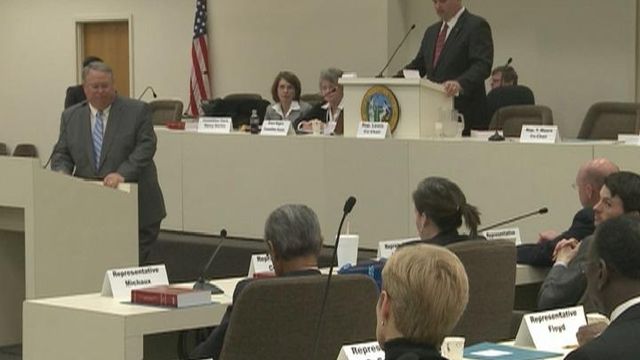The presentation House Elections didn't listen to
Members of the House Elections Committee peppered Elections Director Gary Bartlett with questions for an hour but did not get a chance to hear what the long-serving director came to say.
Posted — UpdatedBartlett and his staff gave a short introduction, and then he mentioned that he had seven suggestions for the committee to consider. That's about when the questions started.
Committee members asked about everything from what type of voting equipment the state uses – either optical scan or direct record computers, depending on what county you live in – to incidents of voter fraud – the state is still investigating incidents from 2012 – to training for Board of Elections members.
Rep. Carla Cunningham, D-Mecklenburg, asked how voters could look up what votes they cast after leaving the polling place. Bartlett said North Carolina doesn't offer printouts of how someone voted to avoid facilitating vote-buying schemes.
- Recodify Chapter 163 (This is the section of North Carolina law that deals with elections.)
- Unaffiliated voters represent 25.7 percent – what role should they play in the elections process?
- Form consortium with states for voting equipment certification and best practices and the same for voter registration
- Provide funding for an online Voter Guide of all candidates who choose to use it
- Civil penalties in lieu of most misdemeanors
- Purchase the best and most secure system for the electronic submission of ballots for UOCAVA voters (These are North Carolina residents who cast their ballots overseas, including military voters.)
- Great Divide between rich and low-wealth counties – have a safety net at the State Board of Elections where assistance can be given to ensure all voters receive services, not the wealthy counties
Related Topics
Copyright 2024 by Capitol Broadcasting Company. All rights reserved. This material may not be published, broadcast, rewritten or redistributed.





